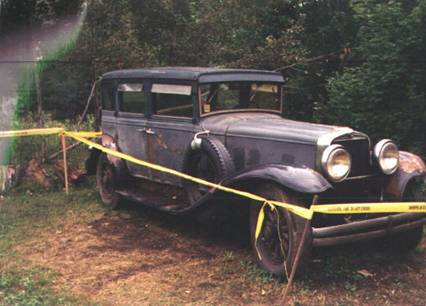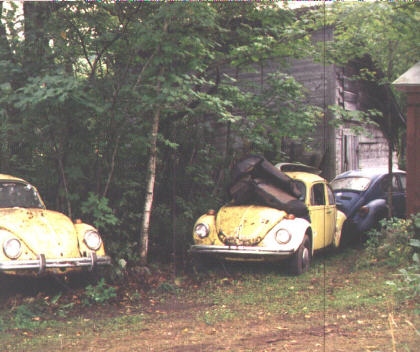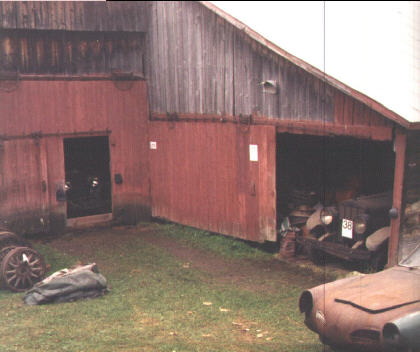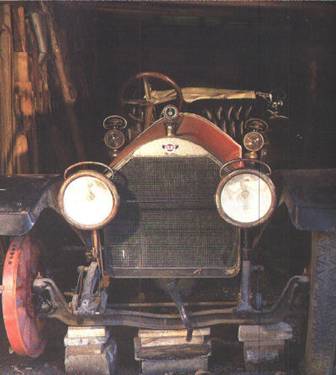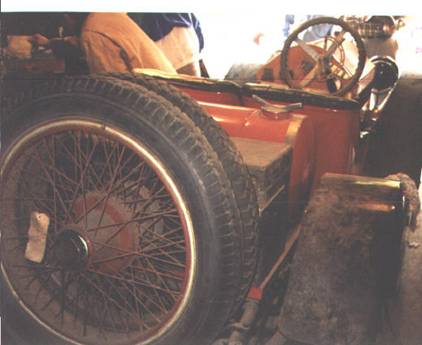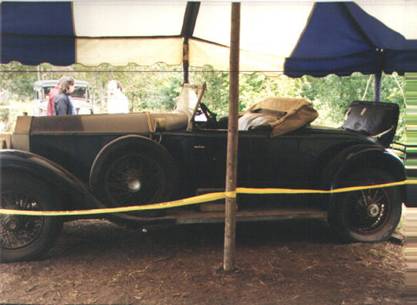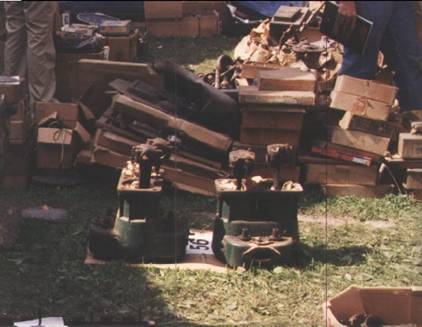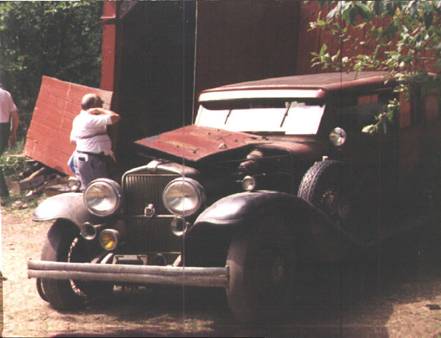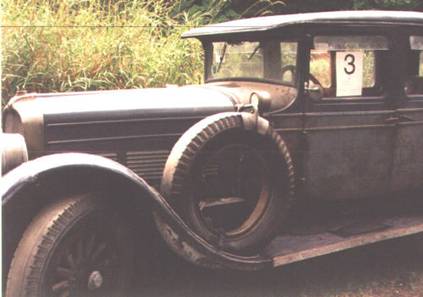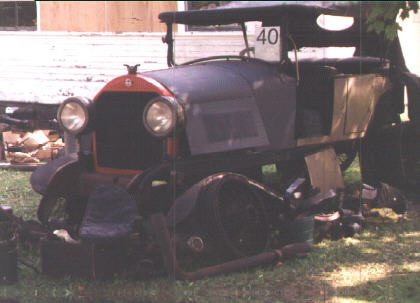You have to read this to believe it!
A.K. Miller’s Front Yard
Consider the strange story of Alex and Imogene Miller of East Orange, VT. They eked out an existence on a small farm. Alex would scrounge rusty nails from burnt buildings to repair his roof. He drove a ratty VW Beetle, and when it died, he found another even more ratty, and another…the rusting carcasses littered his yard. Alex died in 1993, and Imogene died in 1996. The local church took up a collection so they could be buried in the churchyard, and the state began the process of taking the farm for taxes. That would have been the end of a sad story, except…
Forget the VW: a ’28 Franklin ($4500 US) and a ’23 HCS($14,500 US) lurk inside. While preparing the estate for auction, the sheriff discovered a cache of bearer bonds taped to the back of a mirror. That triggered a comprehensive search of the house and outbuildings. The estate auction would eventually be handled by Christie’s , and it would bring out collectors from all over the world.
1913 Stutz Bearcat went for just $105,000 US. Must have been the bad tire. It seems that Alex Miller was a Rutgers grad, son of a wealthy financier. He lived in Montclair , NJ , where he founded Miller’s Flying Service in 1930. He operated a gyrocopter (look it up, it’s too much of a digression) for mail and delivery service through the 30’s. But the Millers had a secret, and they moved from Montclair when they needed room for it.
Step behind the wheel of a 1916 Stutz Bearcat ($155,000 US). Choosing to live low profile, and paranoid about tax collectors, Miller moved to the farm in Vermont, and took his collections with him. Most of his cash had been exchanged for gold and silver bars and coins, which he buried in various locations around the farm. He carefully disassembled his gyrocopter, and stored it in an old one-room schoolhouse on his property. He then built a couple of dozen sheds and barns out of scrap lumber and recycled nails. In the sheds he put his collection.
Have to remember to clean that ’20 Bearcat out of the shed ($50,000 US). Alex Miller had an obsession with cars. Not just any cars, but Stutz cars. Blackhawks, Bearcats, Super Bearcats, DV16’s and 32’s. He had been buying them since the 1920’s. When Stutz went out of business, he bought a huge pile of spare parts, which was also carefully stored away in his sheds.
A Springfield Rolls Piccadilly Roadster ($115,000 US), made in Illinois. Sometimes he would stray, and buy other “special cars”, including Locomobiles, a Stanley , and a Springfield Rolls Royce. He never drove them. He’d simply move them into his storage sheds in the middle of the night, each car wrapped in burlap to protect it from any prying eyes. Over the years, the farm appeared to grow more and more forlorn, even as the collection was growing.
A snappy car: 1921 Stutz Bearcat ($58,000 US). Occasionally he would sell some parts to raise cash. Rather than dipping into his cache, he would labor for hours making copies of the original parts by hand.
Stutz factory spares. Cylinders and pistons from a brass era Stutz in foreground. Collectors knew him as a sharp trader, who had good merchandise but was prone to cheating. His neighbors had no clue at all, they thought Alex and Imogene were paupers, and often helped out with charity.
Wheelbarrow blocks a ’28 Stutz Blackhawk Boattail Speedster ($78,000 US). The auction was a three day circus, billed as the “Opening of King Stutz Tomb.” It attracted celebrity collectors, as well as thousands of curiosity seekers. The proceeds were in the millions, some items went for far more than their value in the frenzy. In the end, the IRS took a hefty chunk of the cash for back taxes, which proves the old adage about the only two sure things in life.
A vanilla ’31 SV16 Stutz Sedan ($10,000)
Bargain of the show: a ’29 Stutz Blackhawk sedan for $7000 US
A beautiful Stutz DV32 Sedan ($27,500)
Anyone need a new Stutz engine? Still factory fresh.
A’23 HCS ($12,000 US) lurks in the darkness of the barn.
A Lebaron dual-cowl Stutz from 1929 ($68,000 US)
Bargain of the show: a ’29 Stutz Blackhawk sedan for $7000 US
A ’27 Stutz AA Sedan for $6500 US
1925 Stutz Speedway Six ($9000 US)
T-Head engine in a ’21 Bearcat
Build a ’22 Stutz touring car from this pile of parts for just $10,000 US
Final tally:
$2.18 million at auction
$1 million in gold
$75,000 in silver
$400,000 in stock
… and they never got to enjoy it!

